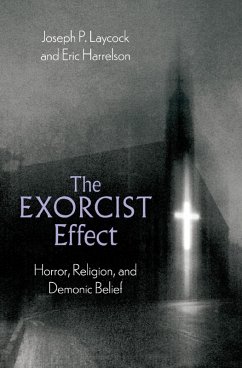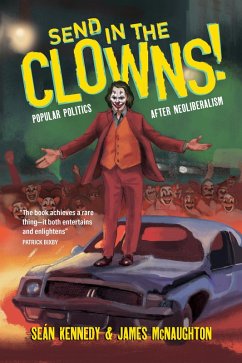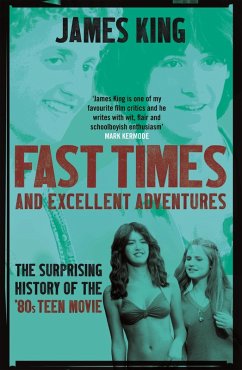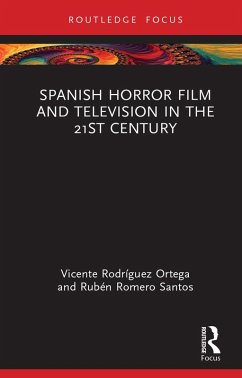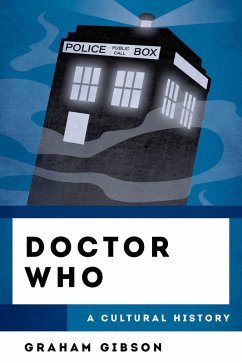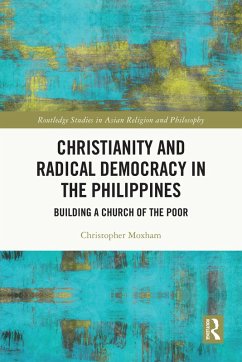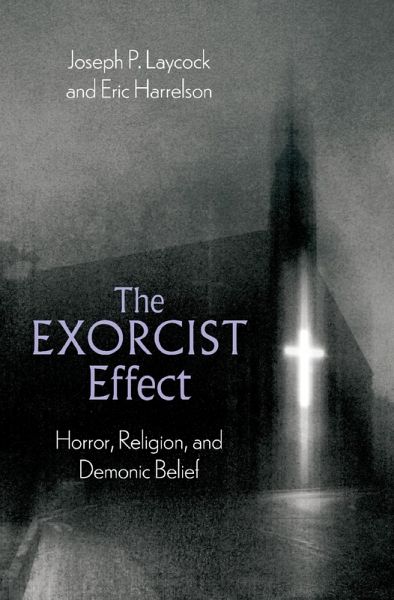
The Exorcist Effect (eBook, ePUB)
Horror, Religion, and Demonic Belief
Versandkostenfrei!
Sofort per Download lieferbar
14,95 €
inkl. MwSt.
Weitere Ausgaben:

PAYBACK Punkte
7 °P sammeln!
The Exorcist Effect is a fascinating historical study of the ongoing relationship between horror movies and Western religious culture, with a focus on the period from 1968 to the modern day. Taking its name from the 1973 film The Exorcist, which was widely understood to be based on a true story, this book outlines a cycle in which religious beliefs and practices become the basis of films that in turn inspire religious beliefs, practices, and experiences in response. Authors Joseph P. Laycock and Eric Harrelson draw heavily from archival research to shed new light on the details of this phenome...
The Exorcist Effect is a fascinating historical study of the ongoing relationship between horror movies and Western religious culture, with a focus on the period from 1968 to the modern day. Taking its name from the 1973 film The Exorcist, which was widely understood to be based on a true story, this book outlines a cycle in which religious beliefs and practices become the basis of films that in turn inspire religious beliefs, practices, and experiences in response. Authors Joseph P. Laycock and Eric Harrelson draw heavily from archival research to shed new light on the details of this phenomenon, in addition to incorporating interviews with horror authors, film writers, and paranormal investigators. Drawing on psychology, sociology, and folklore studies, Laycock and Harrelson theorize how film informs religious experience and shapes religious culture. The Exorcist Effect examines the production and reception of Rosemary's Baby (1968), The Exorcist (1973), and The Omen (1976) as seminal films in the genre; figures as Malachi Martin as well as Ed and Lorraine Warren, who inserted themselves directly into the spotlight, and the horror films that influenced and were inspired by their careers; and areas of culture where the influence of this cycle was most apparent-the Satanic Panic, religious exorcisms, and moral panic over heavy metal and the messages it was purported to spread. The final chapter considers the QAnon conspiracy theory and its numerous allusions to film as a contemporary manifestation of The Exorcist effect. Ultimately, The Exorcist Effect is a deftly researched and compelling volume that is sure to interest horror buffs, religious scholars, and historians alike.
Dieser Download kann aus rechtlichen Gründen nur mit Rechnungsadresse in A, B, BG, CY, CZ, D, DK, EW, E, FIN, F, GR, HR, H, IRL, I, LT, L, LR, M, NL, PL, P, R, S, SLO, SK ausgeliefert werden.




